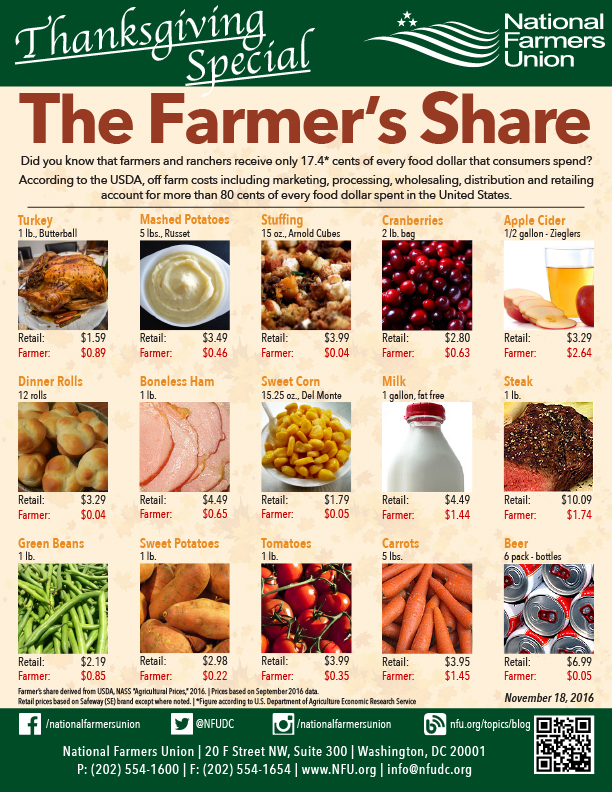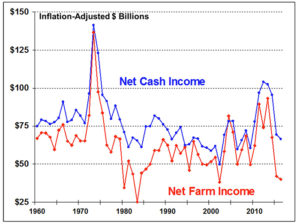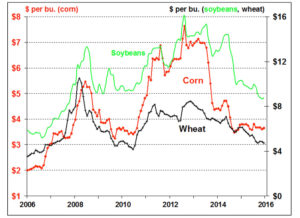 *Download Convention Registration Here*
*Download Convention Registration Here*
We are just weeks away from the Ohio Farmers Union 83rd Annual State Convention!
Our convention will be held in Columbus at the Airport Marriott. The convention begins at 1 p.m., Friday, January 27 and will conclude with a luncheon on Saturday, January 28.
While we are still finalizing the roster of presenters, we will be hearing from Director of the Ohio Dept. of Agriculture David Daniels and Fred Yoder of President-elect Donald J. Trump’s Agricultural Advisory Board. Stay tuned because we are adding to the program.
Just as importantly, we will of course be setting OFU’s policy priorities for 2017 as well as holding the annual by-laws committee hearing and holding our annual OFU Farm-PAC event on Friday evening before the banquet.
The Airport Marriott is located at 1375 N. Cassady Ave. in Columbus. A block of rooms are being reserved for OFU until January 10, 2017. Rooms this year are $132.72 per night and reservations may be made by calling 1-800-491-5717 – mention Ohio Farmers Union when you call to reserve your room.
All OFU members are welcome and encouraged to attend the convention. To qualify for voting privileges, convention delegates must be registered by 4 p.m. on Friday, January 27.
Convention registration is now open and costs $75 per attendee. The Friday banquet and Saturday luncheon are included in your cost of registration. Download the convention registration form here.
Checks should be made payable to Ohio Farmers Union and completed registration forms should be sent to: Ohio Farmers Union, P.O. Box 363, Ottawa, Ohio 45875.
Please contact the OFU state office at 800-321-3671 with any questions. We look forward to seeing you at the convention!
 Consumers’ holiday food costs have declined, but farmers still receive less than 20 percent of the food dollar, according to the annual Thanksgiving edition of the National Farmers Union (NFU) Farmer’s Share publication. The popular Thanksgiving Farmer’s Share compares the retail food price of traditional holiday dinner items to the amount the farmer receives for each item.
Consumers’ holiday food costs have declined, but farmers still receive less than 20 percent of the food dollar, according to the annual Thanksgiving edition of the National Farmers Union (NFU) Farmer’s Share publication. The popular Thanksgiving Farmer’s Share compares the retail food price of traditional holiday dinner items to the amount the farmer receives for each item.

 Recognizing the importance of fostering conservation and sustainability practices, National Farmers Union (NFU) is pleased by yesterday’s introduction of bipartisan legislation that would ease burdensome requirements for landowners participating in voluntary U.S. Department of Agriculture (USDA) conservation programs.
Recognizing the importance of fostering conservation and sustainability practices, National Farmers Union (NFU) is pleased by yesterday’s introduction of bipartisan legislation that would ease burdensome requirements for landowners participating in voluntary U.S. Department of Agriculture (USDA) conservation programs. Last week, two major reports were released that further cemented what we already know – oversupply in the marketplace is driving commodity prices further and further downward, and after three years of declining prices, real estate values and credit conditions are beginning to deteriorate.
Last week, two major reports were released that further cemented what we already know – oversupply in the marketplace is driving commodity prices further and further downward, and after three years of declining prices, real estate values and credit conditions are beginning to deteriorate.


